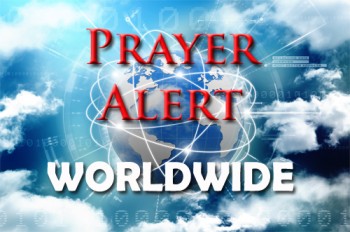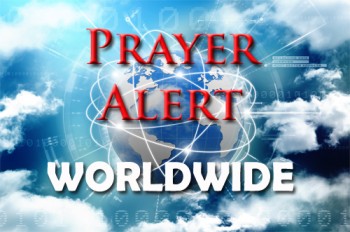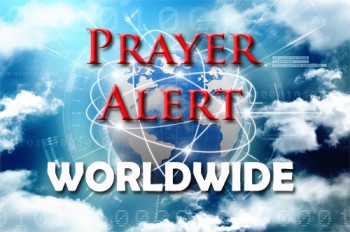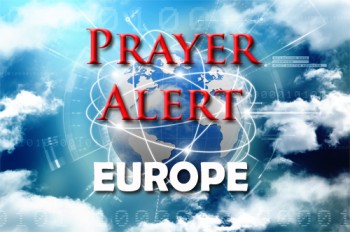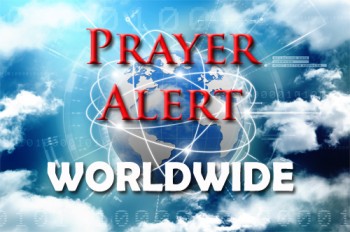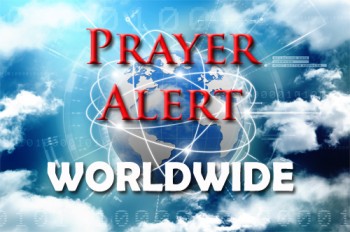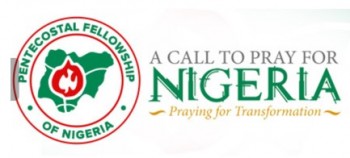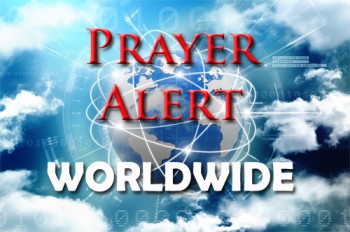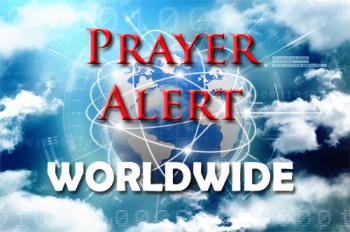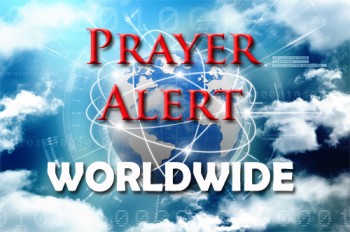Displaying items by tag: Persecution
Ethiopia: Christian women, children and elderly massacred
Survivors of a massacre at a school in the western Oromia region of Ethiopia reported that 54 ethnic Amhara were massacred, probably more. The Amhara are mostly Christians. About 60 armed terrorists, identifying themselves as the Oromo Liberation Army (OLA), swept into Gawa Quanqa village, Guliso District at around 5 pm on 1 November. Some survivors were able to flee to a nearby forest while the assailants rounded up women, children and elderly who were unable to run away. Then they shot the defenceless group and burnt 120 houses. ‘This senseless attack is the latest in a series of killings in the country in which members of ethnic minorities have been deliberately targeted’, said Amnesty International.
Chad: Christians on the brink
There is ‘a serious threat to the survival of the Christian faith in Chad,’ says Rev Clément Hlama. Islam dominates Chadian society, and discrimination against Christians is normal. Poor and uneducated Christians are vulnerable to exploitation and are the most severely affected by 2020’s multiple disasters. Flooding affected 400,000 people. Christians in rural areas lost homes and harvests. Covid-19 lockdown damaged small businesses and prevented farmers travelling to their fields. Food prices shot up, causing malnutrition to escalate. Measles and meningitis outbreaks earlier this year are in decline, but the viral disease chikungunya and a type of vaccine-derived polio is continuing to spread. Cholera is endemic in parts of the south. This would be bad enough for any country, but Chad’s frail health resources cannot begin to cope. Islamic charities are active amongst the Christians, Islamising them through offers of aid.
Nigeria: ‘Sometimes there are days without any help’
Imagine what life is like when it is unsafe to live in your own home, or you can’t guarantee you and your children will have food each day? That’s the awful reality for many Christian women in northern and central Nigeria - on top of the grief and trauma brought about by violent conflict and killings. Tirham, a volunteer at an Open Doors trauma centre in Nigeria, says, ‘Sometimes there are days without any help from anyone for them to be fed.’ She was speaking about the impact of Covid-19 on daily life for many Christian women living in the shadow of violence. We are asked to pray that every Christian family affected by violence in Nigeria will be provided with food, shelter and safety, and that violent militant attacks will cease. Pray for continued strength, protection, and encouragement for Open Doors partners like Tirham, who come alongside those affected by persecution.
Russia: persecution of missionaries
Individuals of almost every religious affiliation continue to face prosecution under Russia’s ‘anti-missionary legislation’ for exercising their right to freedom of religion and belief. Despite a 2018 constitutional court decision which offered some clarification of what ‘missionary activity’ means, police and prosecutors continue to initiate cases to punish a wide range of activities, from advertising events online to holding ordinary worship services for fellow believers. 142 prosecutions reached courts in the last six months.
Cameroon: Bible translator killed
Bible translator and literacy teacher Pastor Christopher Tanjoh was killed on 7 August following an attack in his village. Last year two other Bible translators in Cameroon died in similar incidents. He bled to death after being shot in the leg, leaving behind a wife and seven children. Wycliffe’s executive director said, ‘This tragic news reminds us how much the gospel message is urgently needed in Cameroon. Until people are transformed by Jesus, there will be no lasting peace. We continue to work with local partners to translate the Bible so that every Cameroonian can read the Bible in the language that speaks to them best.’
Nigeria: stop killing in Southern Kaduna
Since January there have been constant murders, looting, rape and abductions of Christians in Southern Kaduna. On 9 August a series of short videos entitled ‘Stop the Killings in Southern Kaduna’ was released as part of a campaign calling for an end to targeting Christian communities. The videos feature high-profile celebrities, actors, comedians, music artists and business executives. The president of the Southern Kaduna Peoples Union said, ‘There is no greater lie than the narrative that the killings in southern Kaduna are between farmers and herders. 75% of the victims were women and children’. CSW has called for effective action to address the situation and echoes the Nigerian entertainment industry which has spoken out about the relentless loss of life. CSW says, ‘We continue to call for urgent international interventions, including the convening of a special session of the UN human rights council, with particular focus on the current crisis in southern Kaduna and Plateau State.’
Nigeria: PLEA FOR INTERCESSION – Pastor Austen Ukachi
Nigeria is presently passing through one of her most difficult times in history. The church is facing an existential threat from islamists with a clear agenda to overrun the entire nation.
Unfortunately, there is a conspiracy of silence by the international media concerning the atrocities taking place in Nigeria (similar to what happened in 1994 before the genocide in Rwanda). In an opinion piece on The Wall Street Journal of 20th December, 2019, Bernard-Henri Lévy wrote: “A slow-motion war is under way in Africa’s most populous country. It’s a massacre of Christians, massive in scale and horrific in brutality. And the world has hardly noticed.”
In recent years, Nigeria has been consistently ranked among the top five nations on the Global Terrorism Index. Of the four deadliest terrorist groups in the world, three operate in Nigeria: Islamic State of West Africa Province, ISWAP, an offshoot of ISIS; Boko Haram; and Fulani Herdsmen (militants). In Nigeria, the three groups are united in their goal to exterminate Christians especially in Northern Nigeria and ultimately make Nigeria an Islamic nation. They seem to have the will and wherewithal to accomplish their goal unless the Lord stops them.
In the past, they were restrained by government’s honest prosecution of the war against terrorism. But in the last five years, a new government, led by people who have been accused of being sympathetic to the Islamic agenda, has been unsuccessful in stemming the rampage of the terrorist groups. Curiously, almost the entire military and security agencies of Nigeria are under the control of devout Muslims (mostly Fulanis), some of whom have been accused of aiding and abetting the terrorists. A respected former president of Nigeria, Chief Olusegun Obasanjo, has openly accused the government of having a “fulanisation and islamisation agenda.”
The well-known historian and theologian, Professor Philip Jenkins, in his book entitled, The Next Christendom, aptly stated that: “At least, 45% of Nigerians are currently Christians, some 72 million people. But how will the number change in future decades? No church or religion has a guaranteed market share in any country. It is quite possible to imagine a scenario in which the proportion of the Nigerian Christians could fall as low as 10% in the event of persecution or a successful jihad by the nation’s Muslims. The figure could rise higher if a sweeping Christian revival were to occur.” The activities of the terrorists and the policies of the government are tending towards the former. The only acceptable option for the church in Nigeria is revival, that is why we must pray.
See Obianuju Ekeocha's emotive video pleading for prayer and action on this serious situation in Northern Nigeria. It contains graphic images of the Kukum Daji massacre aftermath that took place in July 2020:
The following prayer points are only a guide. May the Lord bring us to the depth of prayers that would stem this rising tide of violence in Nigeria.
1. TERRORIST GROUPS. ISWAP, Boko Haram, and Fulani Herdsmen are ranked 2nd, 3rd and 4th on the Global Terrorism Index. The Nigerian government does not still consider militant Fulani Herdsmen a terrorist group. This has enabled them to continue with their mayhem against Christian communities while the security officers look the other way. The activities of the herdsmen now extend to virtually every part of the country. There are speculations that it is a modern form of jihad. Pray that God would stir up a national and international outcry and action against these groups.
2. PERSECUTION OF CHRISTIANS IN THE NORTH. Pray that God would strengthen the Christians in the north. Many pastors and their members have been murdered by Islamic fundamentalists. Sometimes, these executions are carried out in the community square before children and other onlookers to inflict further pain on those who survive. Many of these Believers have been traumatised and scared for life. Pray for God to heal their emotions and strengthen their faith.
3. ECONOMIC JIHAD. There is an ‘economic jihad’ that is being waged against non-Muslims, especially Christians. Christians are losing their jobs and are being replaced by Muslims; Christian farm lands are either expropriated by state governments in the North or forcefully taken over by Fulani herders. Pray for God to comfort and provide for His people in their sufferings.
Download the full Nigeria Prayer Guide with 16 different prayer pointers from the IPC Website
Pastor Austen Ukachi – IPC West Africa Director
Muslim-background believers
Since the 1960s, there has been considerable growth of conversions from Islam to Christianity. Most of these conversions have been to forms of evangelical or Pentecostal Christianity, and some converts claim to remain in some way both Muslims and followers of Jesus. Pray for the continued growth of mission agencies taking the good news to those who have not heard it. Muslim-background missionaries are vibrant Christians even though most of them are hated by their home countries and Muslim leaders, and are ostracised, beaten, and murdered by their families and neighbours: see Pray for God to continue to strengthen the endurance of new Christians as they evangelise, preach and demonstrate God’s love into the darkest corners of Islam. Converts from Islam face insurmountable questions on an almost daily basis, such as ‘I have more than one wife, what do I do?’ or ‘How can I support myself now my family has rejected me?’ See
Egypt: church demolitions
On 30 May, two days before ‘Global Coptic Day’, authorities demolished the only Coptic church in Koum al-Farag village, even though it served 3,000 Christians. The demolition was a punishment for the 'crime' of building rooms for Sunday school. When the extension work began, Muslims attacked the Christians by building a mosque next door (according to common law, churches are prevented from being formally recognised or displaying Christian symbols if a mosque is built next door). Police also imprisoned 14 Christians overnight. The nearest church is now ten miles away. Demolitions of churches are seldom reported in the West. Christians and priests are also randomly assaulted in Egypt’s streets - not by terrorists but by Muslim neighbours. See
Persecution and other dangers amid coronavirus
During the coronavirus lockdown, Nigerian Fulani militants have murdered a five-year-old child they snatched from a pregnant mother, another nine Christians including two children, and a second pregnant woman In Egypt, seven Islamist terrorists, suspected of plotting to attack Christians under cover of the nightly coronavirus curfew, were shot dead. In West Africa, Boko Haram leader Abubakar Shekau declared coronavirus a ‘product of evil’ while he mocked health measures and stepped up attacks. In East Africa the arrival of a second invasion of ravenous young locusts, spawned in Ethiopia, is feared to be twenty times more severe than the plague that devastated crops in January. Iran is facing major challenges. Its slow response to the pandemic, lack of transparency, and absence of an exit strategy, together with the US sanctions and the fall of oil prices, have compromised its healthcare system, its economic situation, and the daily lives of its people.
